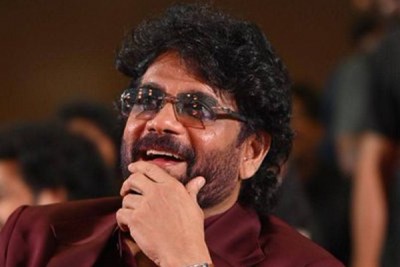The Mother, The Map, and the Movement: How India Quietly Built the World�s Most Complete Autism Care System
National | Written by : IANS| Updated: Tue, May 20, 2025, 04:23 PM

|

|

The Rise of Pinnacle Blooms Network, India’s AI-enabled, women-led, universally accessible autism therapy model that is now being studied and replicated across continents.
Opening Portrait
The smell of boiled rice drifted from the kitchen. A temple bell rang in the distance. The sun had just begun to rise over a small village near Miryalaguda when Anjali, a 4-year-old girl with silent eyes and a world locked inside her, sat cross-legged on the ground outside her home. Her mother, Sushmita, gently placed the laminated mango flashcard—faded, fingerprinted, its corners curled from weeks of use—into her lap. For months, they had sat here. Same card. Same silence.
But that morning was different.
Anjali looked up. Her gaze met her mother’s eyes for the very first time.
She didn’t speak.
She didn’t need to.
The silence broke with recognition—with connection—with something that had never happened before.
What changed?
Just three weeks earlier, they had begun receiving life-empowering therapy from a Pinnacle Blooms Network center.
The therapist—Ravali Yadav, a soft-spoken woman who spoke in their dialect and sat barefoot beside Sushmita—had shown her how to turn everyday routines into therapy. She left her with a packet of visual prompts, a few color-coded tools, and a printed sheet with something called an AbilityScore®—red zones, yellow zones, green zones. It looked like a report card. But for Sushmita, it was the first roadmap out of helplessness.
Anjali had been seen.
And now, she was beginning to see back.
Across India—from tribal belts in Telangana to apartment corridors in Bengaluru—these moments are unfolding every day. Quiet. Private. Powerful.
This isn’t a story about a therapy session.
It is a story about hope rediscovered, voices unlocked, futures rewritten.
And behind many of these moments is a silent revolution with a loud mission: Pinnacle.
What began as one therapy center is now a 70-city movement.
What started as a mother’s desperation is now a patented model.
And what was once unmeasured is now being scored, mapped, and transformed with intelligence, empathy, and design.
This is not just India’s story.
This is a new chapter in how the world understands autism.
And it starts on the floor, in a village, with a mother,
a mango card,
and a child who had no words—
now reaching out to the world with her eyes.
The Silence India Lived With
In India, the silence around child development didn’t sound like neglect.
It sounded like waiting. For decades, autism and speech delay were misunderstood as defiance, shyness, or bad parenting.
Children who couldn’t express themselves were labeled “slow,” “stubborn,” or worse.
Schools had no frameworks. Pediatricians had few screening tools.
And families were told to do the most dangerous thing of all: “Wait and see.”
But the numbers kept growing.
The data told a quiet story.
An estimated 1 in 68 children in India may be on the autism spectrum—a number likely underreported.
1 in 5 kids now show signs of speech or communication delay before the age of five.
And perhaps most alarmingly, over 90% of neurodevelopmental issues remain undiagnosed or untreated until it is too late.
In rural areas, one therapist may serve an entire district.
In urban centers, waitlists stretch into months.
Special education is an afterthought in most schools. Inclusion is more policy than practice.
There is no unified screening protocol.
No developmental scoring method.
No language for families to understand what is truly happening to their children.
And so, families waited.
Hoped.
Googled.
Whispered.
Cried.
Because what India faced was not just a clinical gap.
It was a crisis of clarity.
Without data, there was no direction.
Without tools, there was no therapy.
Without language, there was no understanding.
And without understanding—there was no hope.
Until the silence met a system.
One not handed down but built from the ground up.
Until that system gave parents something they had never had before:
A score. A plan. A voice.
The Rise of Pinnacle
It did not begin with a plan.
It began with a mother.
A mother who refused to wait.
A mother who believed that her child’s silence was not defiance but a call for help.
A mother who found allies in therapists, technologists, and educators.
Together, they built Pinnacle Blooms Network—a system that combines AI-driven assessments, culturally rooted therapy, and a scalable model that reaches families across India.
Today, Pinnacle operates in over 70 cities, providing accessible, affordable, and effective autism care.
Their model is being studied and replicated across continents.
Because what started with a mother and a mango card has become a movement.
A movement that is quietly revolutionizing autism care—not just in India, but around the world.

|

|
Recent Post
Written by : IANS | 02:48 PM
Written by : IANS | 02:44 PM




